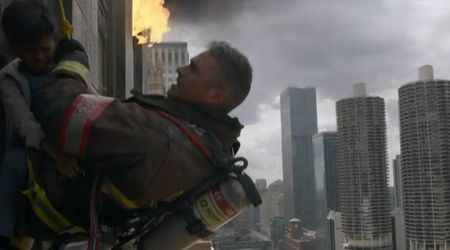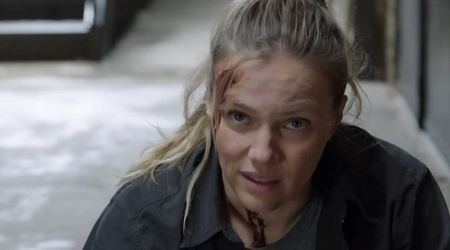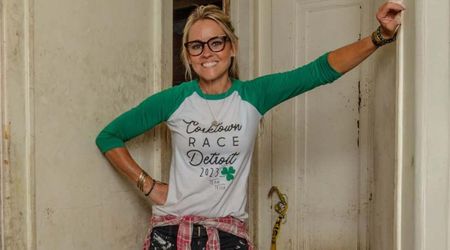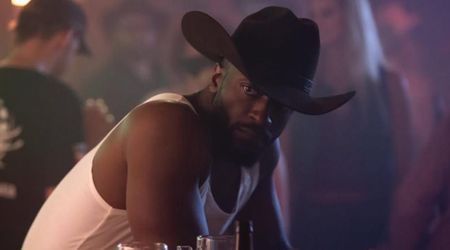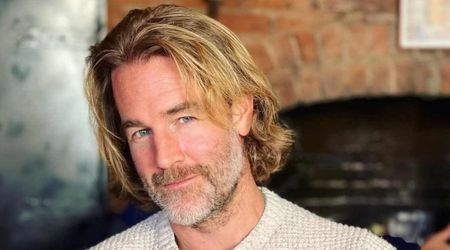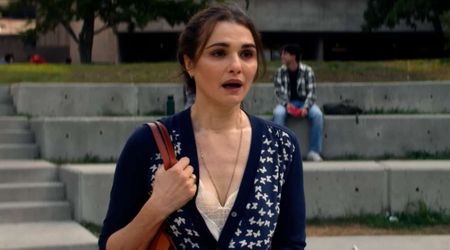'13 Reasons Why' Season 4 Review: A painfully slow march towards yet another death and a second rapist's redemption

Major spoilers for '13 Reasons Why' Season 4
In 2016, when Jay Asher's book was turned into the most sensational television series, Netflix's standing as an original content producer was just as firmly established as it had with 'Stranger Things'. Albeit sensational and often controversial, there was something about the series adaptation of '13 Reasons Why' that made it absolutely unputdownable: both as a twisted craving, and otherwise.
Four years later, Hannah Baker's (Katherine Langford) story has far transcended beyond her tragic suicide and the titular 13 people that contributed to it. On a good day, following the series until its second season isn't all that insufferable. On a not so favourable day, the question we can't shrug off is whether it was really necessary to offer not just Hannah's rapist, but another one too an arc of redemption. And if so, was it really necessary to end the graphic tale by nipping the one character that had truly shown some potential character development, right as he was about to blossom? Arriving at the predictably preachy, but somewhat classic series finale in the just premiered fourth and final series, the only respite shining through is an incredibly talented cast, only complimented further by a riveting Brandon Flynn.
The plot is simple: Montgomery 'Monty' de la Cruz's (Timothy Granaderos) former flame Winston Williams (Deaken Bluman) is out to avenge his prison death. Monty was incarcerated after he was framed for the murder of serial rapist Bryce Walker (Justice Prentice). The same core elements that led to Hannah's death were involved in framing Monty, as one of their own had killed Bryce.
The end of Season 3 saw Monty killed in prison as word got out that he had raped his classmate Tyler Down (Devn Druid) with a mop, and now Winston — a grieving lover — wants to seek justice. It's all twisted and tied up like tangles of frizz, and Brian Yorkey's Netflix adaptation of a story that had long culminated in Asher's book dabbles in offering rapists a redemption, or forced assertion of having won, as high school kids excuse what drove them to murder with an intense, but quite frankly unnecessary build up.
Season 4 sees Winston's struggle to bring Clay Jensen (Dylan Minnette) to justice. Clay — who was in love with Hannah, and a prime accessory in covering up Alex Standall's (Miles Heizer) crime by framing Monty — is meanwhile suffering from intense anxiety at the season's premise, and as usual, seeing dead people all around. Nightmares of Bryce and Monty have been haunting him incessantly and consistently and the premise is his month-long time served in prison for Bryce's murder. His adopted brother Justin Foley (Flynn) tries to get clean in rehab.
Once Justin returns, he ends his relationship with Jessica Davis (Alisha Boe), thus sparking off yet another love triangle surrounding the two, establishing once again how the show's resident star-crossed lovers are quite the Sid and Nancy from the infamous real-life tale.
After a series of blackmails, and people pretending to have dirt on Clay making him go absolutely insane, he spirals further and beyond the realms of consciousness, beginning to act on his anxiety almost as if sleepwalking. His consistent therapy is one of those life-altering on-screen enactments of sessions that would put Good Will Hunting's Robin Williams to shame. And as Clay's tragic, dark, and disturbing coming of age story achieves its climax, we are introduced to a slew of new characters who serve no constructive purpose when the story ends.
Winston, who was supposed to seek justice for Monty, becomes a pawn in Alex's sexual exploration. The time he spends digging into Monty's defense is pretty much the free time he gets from flirting with Alex as a priority. There's Monty's sister Estella who just becomes compensation for Tyler's lack of dating life, and the only positive addition this season is the wholesome Charlie St. George (Tyler Barnhardt) — the guy Alex ends up with.
Storywise, things don't entirely fall apart purely because Minette is a master at playing the disturbed good guy, and Boe's rendition of the women's warrior is an icon in herself. The cast actually really tries to deliver with a script that isn't at all poor; the story, however, tries to, once again, explore a lot of dark topics in an achingly slow manner — drawing them out and stretching them so paper-thin that the intrigue weans off and you just want to rush to the tenth episode, to get it over with the hour-plus long finale titled 'Graduation'.
Touching upon awareness, woke culture, riots, and a mass of grossly misunderstood people engaging in staunch activism to bring about a change, the final season couldn't have come at a better time: giving us goals for both love in Pride Month, as well as activism that mirrors the state of the nation. But at the end of the day, much like its predecessor, Season 4 gets a little too ambitious with developments that don't deserve as much screentime.
In fact, almost all of their stories could be wrapped the same way they offered priority to Hannah with less than five minutes of screentime. True, Langford's days on the show have set long ago, but it would still be better than people who loved the just plain and simple 'angry' Monty profess their love for him and defend his honor despite what he did to Tyler not so long ago. The football team wages a notorious and terrifying prank war on Clay just to avenge Monty's death.
Almost as if Season 4 believes a lot in forgiveness and love, and while the world needs all of those amidst outrage, the string of 10 episodes needed more of letting villains be condemned, than offering a forced redemption. The fact that even after all this Justin gets punished the hardest for helplessly remaining shut as Bryce raped an unconscious Jessica is simply not done. That he was just about getting clean of his heroin addiction and piecing his life together, going to college and showing promise, just hurts more. Justin's complicity is condemned more than Bryce or Monty's active crime, and that is something not even the catchy soundtracks with exciting direction and a jagged narrative make up for.
In this sea of mess, special nods however go to the sequence of Justin's AIDS diagnosis. Flynn essaying the character's brief, but striking deterioration process is a vivid reminder of Tom Hanks' work in 'Philadelphia'. Who knows, some might even label it as a firm rival of Zendaya's standout Rue in HBO's 'Euphoria'. There's dark humor in the way the group of friends united by tragedy deals with their 'running theme' — aka yet another funeral. Clay's girlfriend and former Bryce-apologist Ani Achola (Grace Saif) is a trusted crutch for the other central characters to progress.
It's miraculous how Clay continues to be the only one who goes to therapy, even with all of them either needing to go to prison or at least lifelong counseling. And after perfect goodbyes, perfect eulogies, and perfect graduation speeches, the end of the four-year-long saga becomes a much-needed tribute to 'that damned smile' that started it all. One could go on and one with more than just 13 reasons why the show should have wrapped after Season 2, but as the central essence of Season 4 says it all: you just gotta survive, be it high school, or two extra unnecessary seasons.
'13 Reasons Why' Season 4 is now available for streaming on Netflix.


